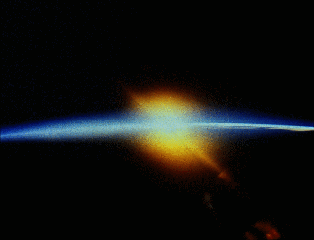 |
Prehistory of the Space Age ...........The events that led to human travel beyond the Earth stretch back thousands of years, and it is impossible to isolate the modern age of rocket ships and space stations from the earlier ages of technological and cultural development. Perhaps the greatest testament to the power of the human brain is our ability to construct and pilot vessels to perform interplanetary travel. But this ability was not an instantaneous achievement; it is an evolutionary legacy that has progressed and grown slowly for millennia. To understand the causal factors of the space age, it is necessary to examine critically not only technological and scientific developments, but also the development of human culture and ideology. From the ancient philosophers to the scientists of today, a thirst for knowledge and explanation with proof has increased and co-developed with the tools of resourceful technology. |
